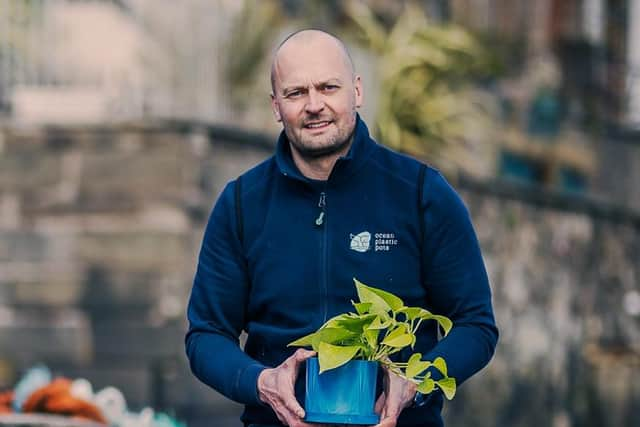A potted solution to rid waters around Scottish coast of discarded maritime rope and nets - Ally Mitchell
However, due to plastics’ longevity and resistance to decomposition, widespread use has led to an epidemic of mismanaged waste, and I have seen for myself the devastating impact that eight million tons of plastic entering our oceans every year can cause.
With over 13 years’ experience as a saturation diver in the North Sea I was used to living in a Hyperbaric diving chamber for up to 28 days at a time at depths of up to 160 metres. Working out of Peterhead, Aberdeenshire, every time that I came back into port, my colleagues and I would put one tonne of waste polypropylene rope in a skip on the quayside.
Advertisement
Hide AdAdvertisement
Hide AdI also recall that on the first day of lockdown in March 2020, I started six weeks on the salvage of a cargo vessel – the MV Kaami – which had hit a reef off the Isle of Skye whilst sailing between Ireland and Germany. The ship was carrying 1937 tonnes of pelletised refuse derived fuel (shredded plastic) to be incinerated. I was appalled at the sight of this soup of waste plastic freely dispersing all around me.


The material on board was PRF – pelletised refuse derived fuel – a high energy pellet made from waste material and when the hull ruptured, the sea water went in, separated these pellets and all the plastic floated to the top – so this was one big plastic soup.
Having never seen that amount of waste on such a scale I knew I had do something to recycle this waste and so that’s where my “eureka moment” to create my Ocean Plastic Pots business became a prime focus. I needed to turn my experience and skills as a marine diver to help clear our coastal waters of marine rope and netting plastics to create a sustainable recycling business befitting of a true circular economy initiative.
Last year – the first full year of production – we produced around 22,000 plant pot products. The collected rope is sent to a recycling plant in England, turned into polypropylene pellets and returned to our appointed contract manufacturing plant where our bespoke tools are located, and the pots are then produced.
Our first Ocean Plastic Pot won Product of the Year at the 2021 Chelsea Flower Show last September and subsequently, we won the Scottish Edge Round 17.
I am grateful to CeeD which is helping us to identify new market opportunities and product development strategies, for example, evaluating the use of 3D printing prototyping to build a pipeline of other gardening sector products.
I plan to continue my mission ridding the waters around the Scottish coastline of discarded maritime rope and nets. The potential to create products which champion true circular economy credentials and show entrepreneurial endeavour should be a path more people need to follow.
Ally Mitchell, Founder of Ocean Plastic Pots
Comments
Want to join the conversation? Please or to comment on this article.